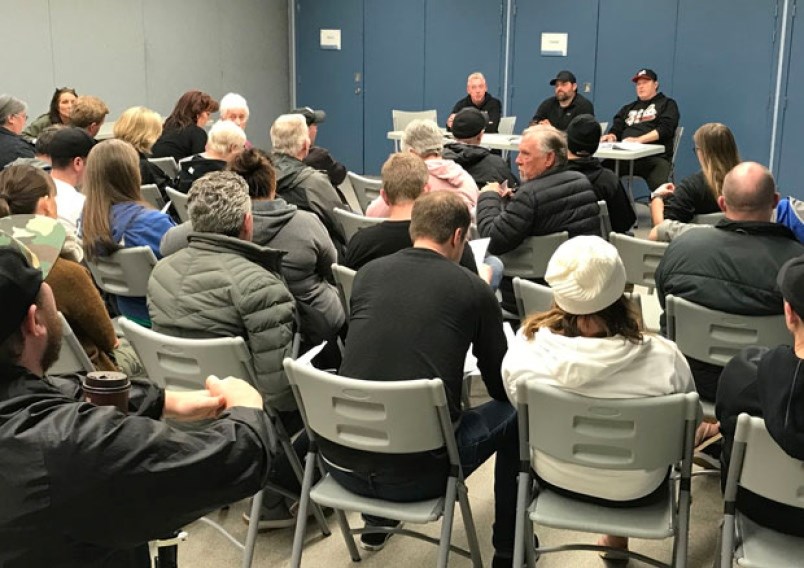It’s awfully hard to play lacrosse on ice.
I offer you that astute observation as Delta’s lacrosse community continues to voice its anger over a deal the City of Delta has with the Vancouver Giants that’s keeping local youngsters off the floor of their neighbourhood arena.
The agreement generally works well, the junior hockey team using ice time during weekdays when no one else wants it, but it gets sticky due to a stipulation in the contract that ensures ice, should it be necessary, remains in place until the end of the WHL playoffs, which run into May. When that happens one of the two arenas in South Delta is off limits to lacrosse teams and other dry floor users.
This situation raises a perplexing question, one that has been asked before when these two worlds have collided: Why would the city inconvenience hundreds of lacrosse players to accommodate one for-profit hockey team? I’m not sure either.
Lacrosse officials feel disrespected by the arrangement and it’s hard to disagree with them. These are public facilities, paid for by the same taxpayers whose kids aren’t able to use them because a junior hockey team has struck a deal with the city. What’s happened to the Delta Families First agenda promoted by the new administration at city hall? Does it only apply in certain instances?
This issue is not about the Giants, owner Ron Toigo or his philanthropy, but boils down to one simple question: Does it make sense to have ice in a publicly-owned arena at a time when the vast majority of users (read taxpayers) of that facility require a dry floor? The Giants certainly aren’t in the wrong as they have a contract with the city, which then begs the question why Delta would allow such an arrangement knowing the potential ramifications?
I see no reason why the Giants wouldn’t be welcome as long as their needs don’t impact other users but should a conflict arise, well, it would make sense for them to then turn to one of the many private rinks in the region that have been constructed to accommodate those not well served by public facilities.
Taxpayer-funded arenas are meant to be used by the public that pays for them, something that can’t happen when ice stays in during lacrosse season.



